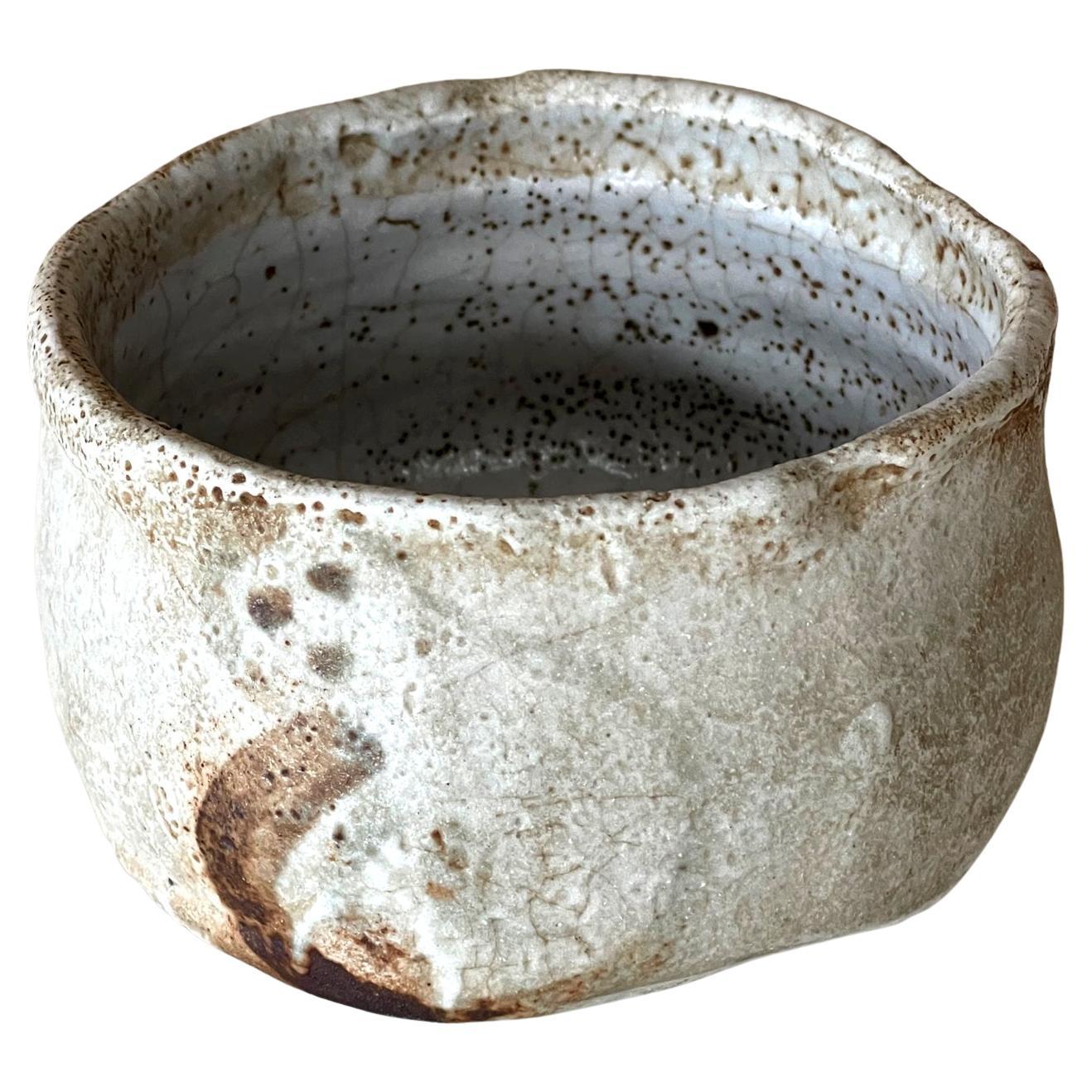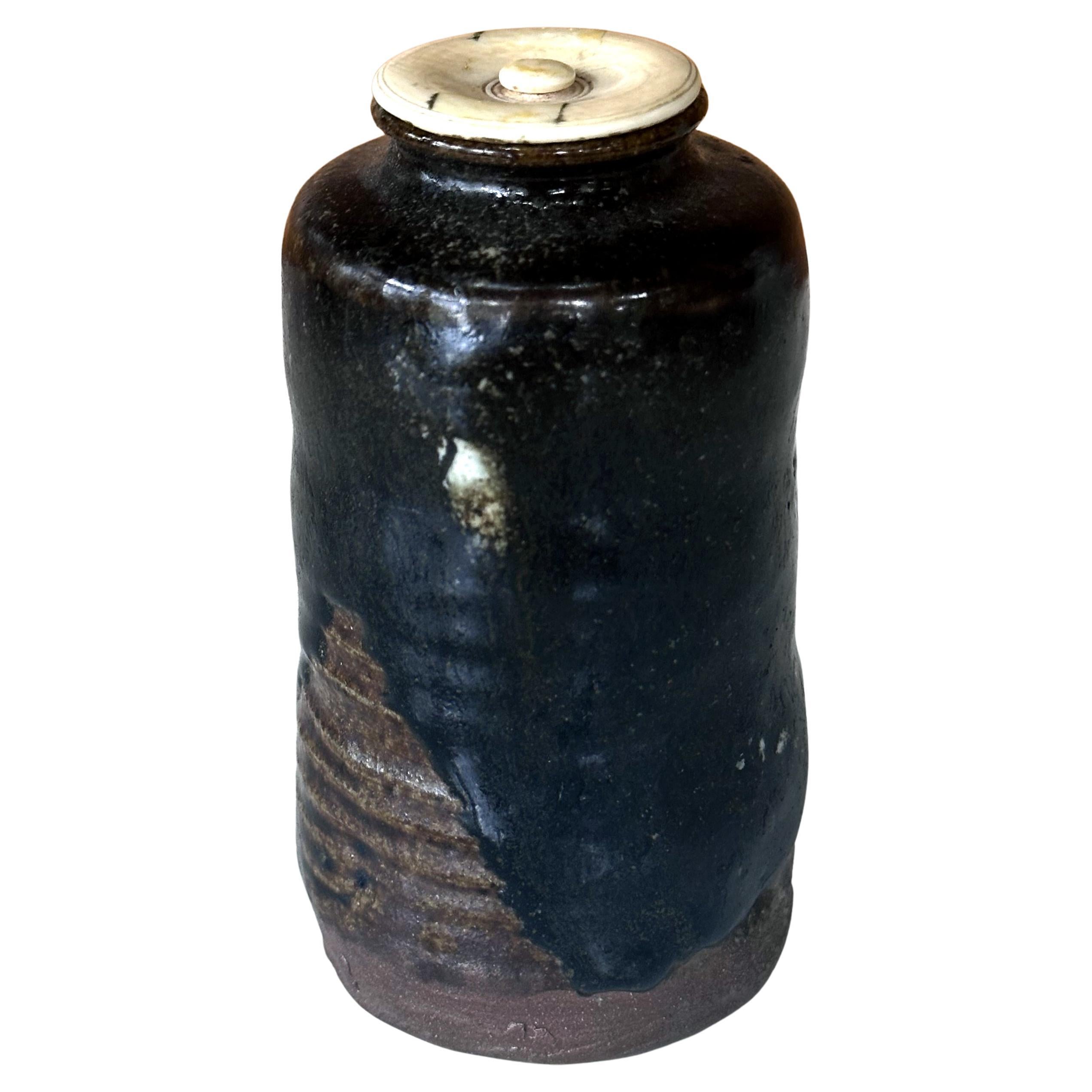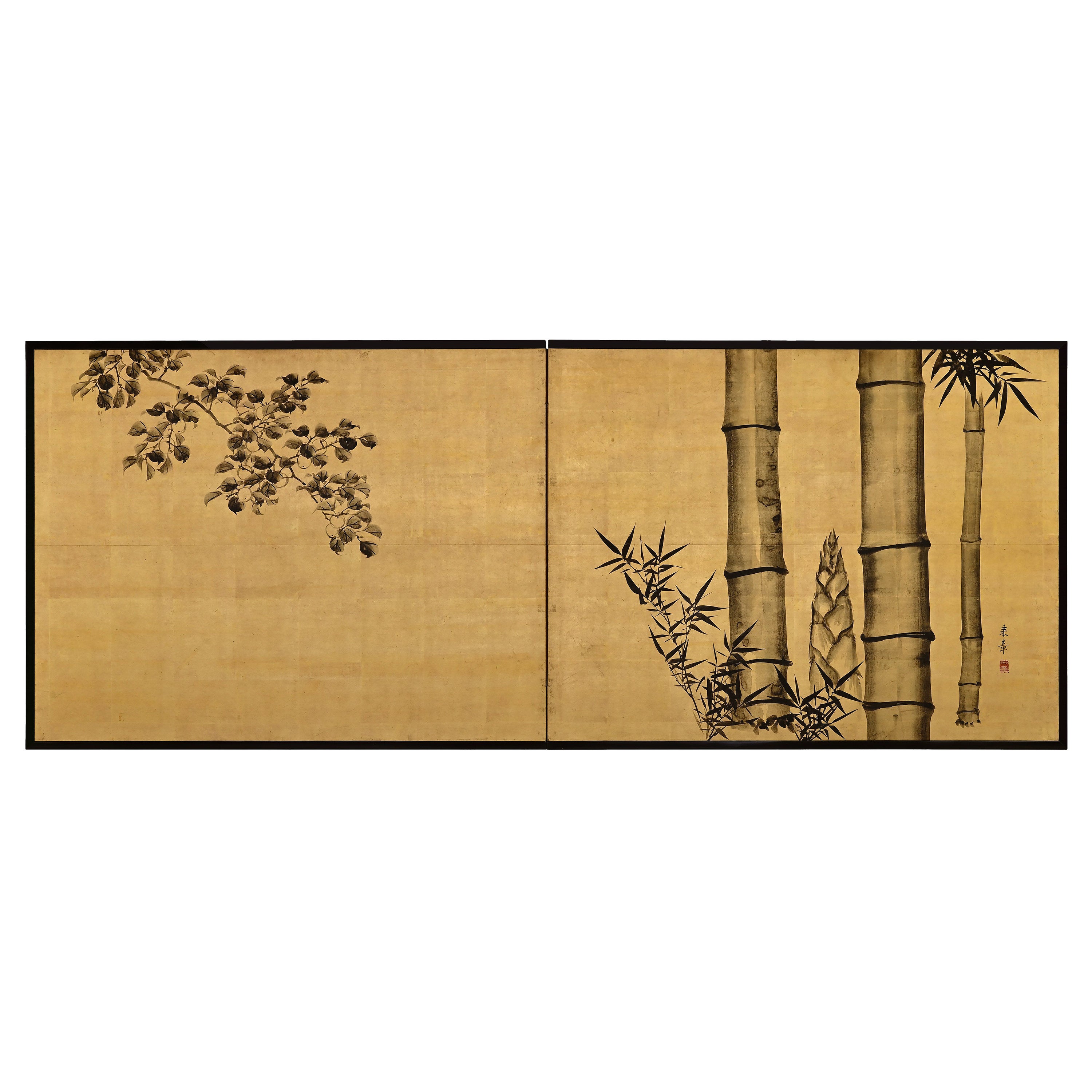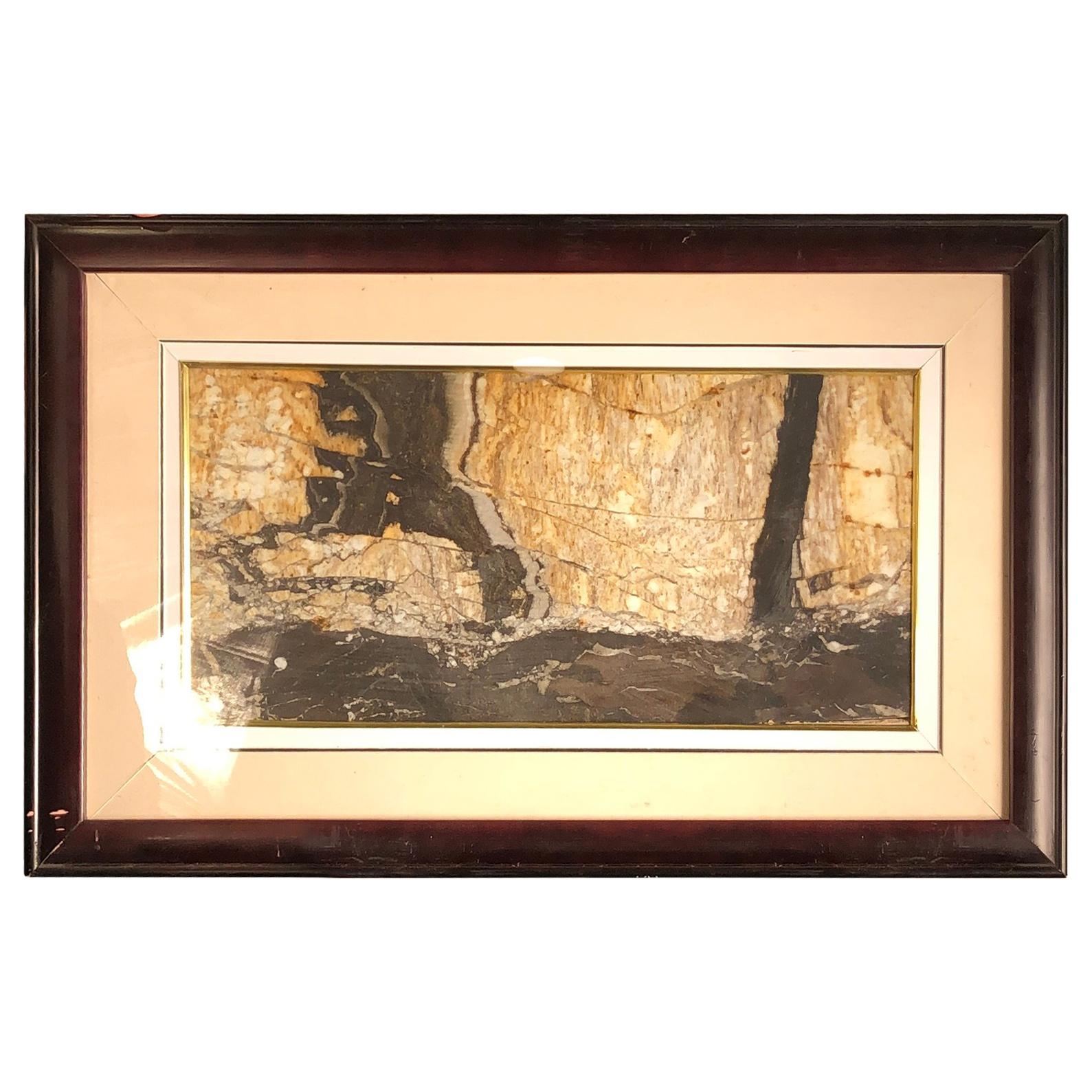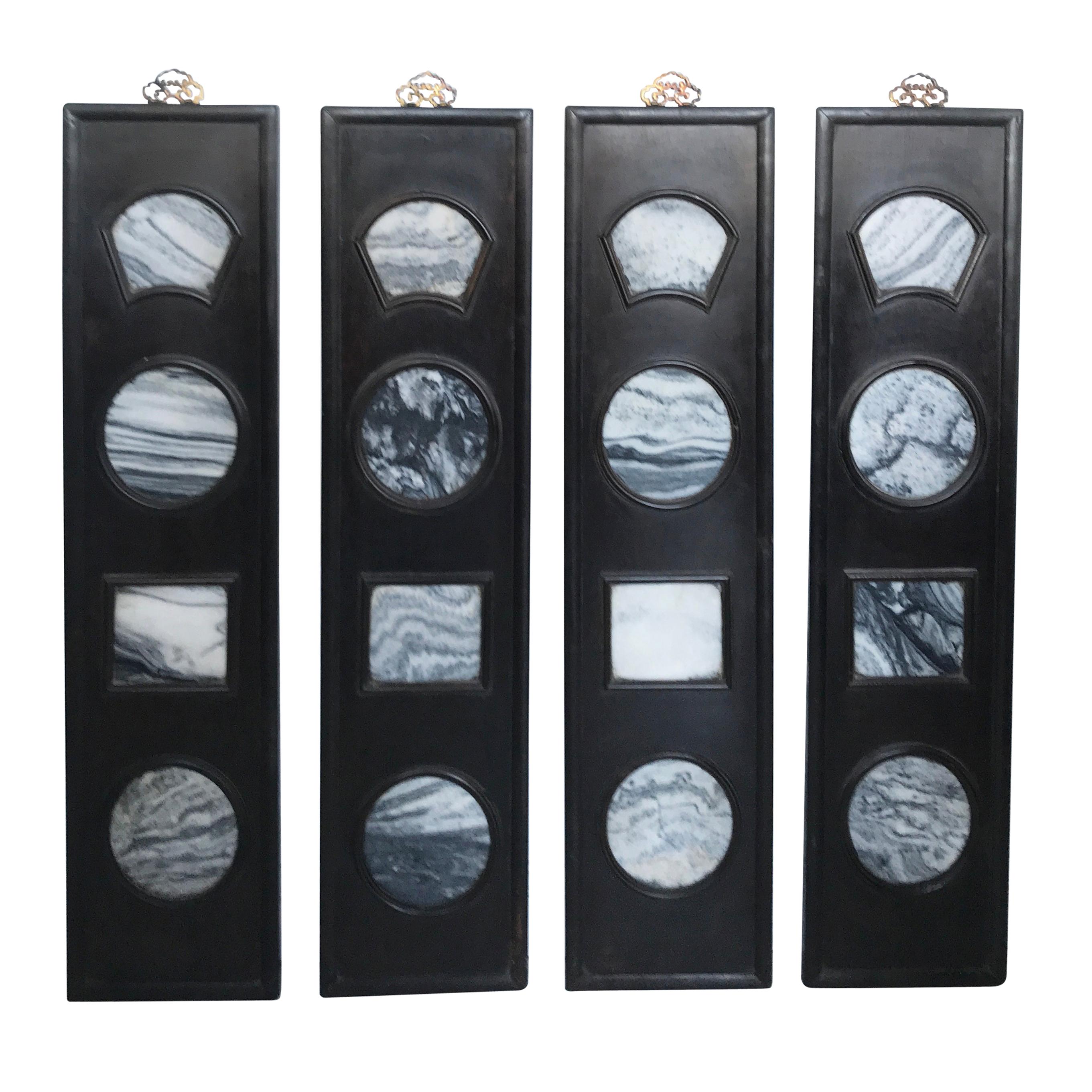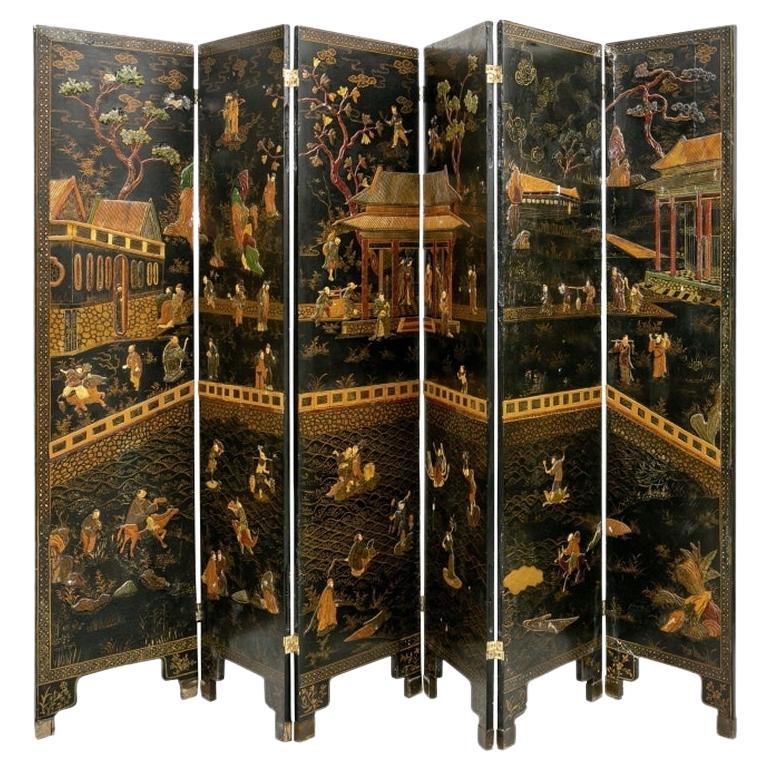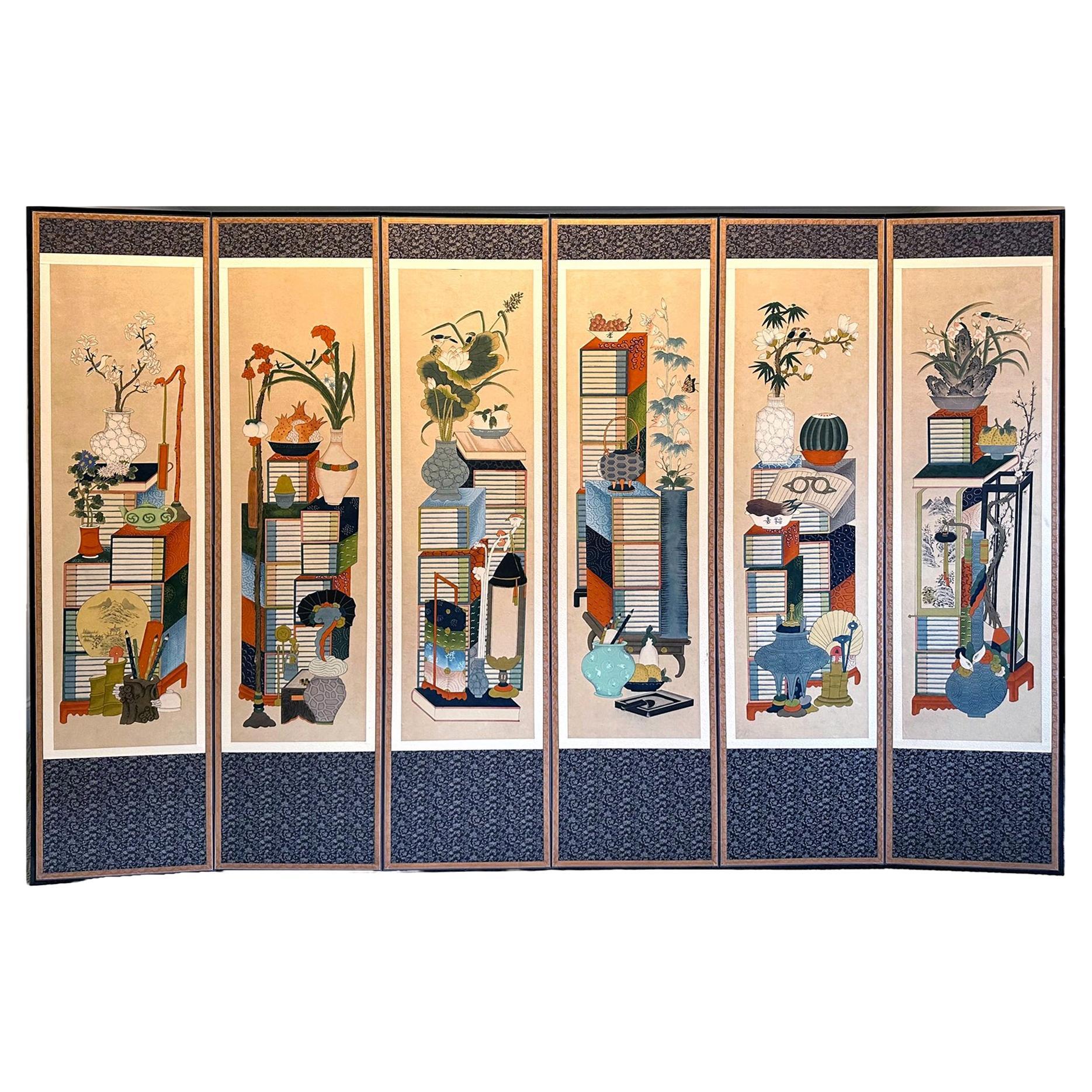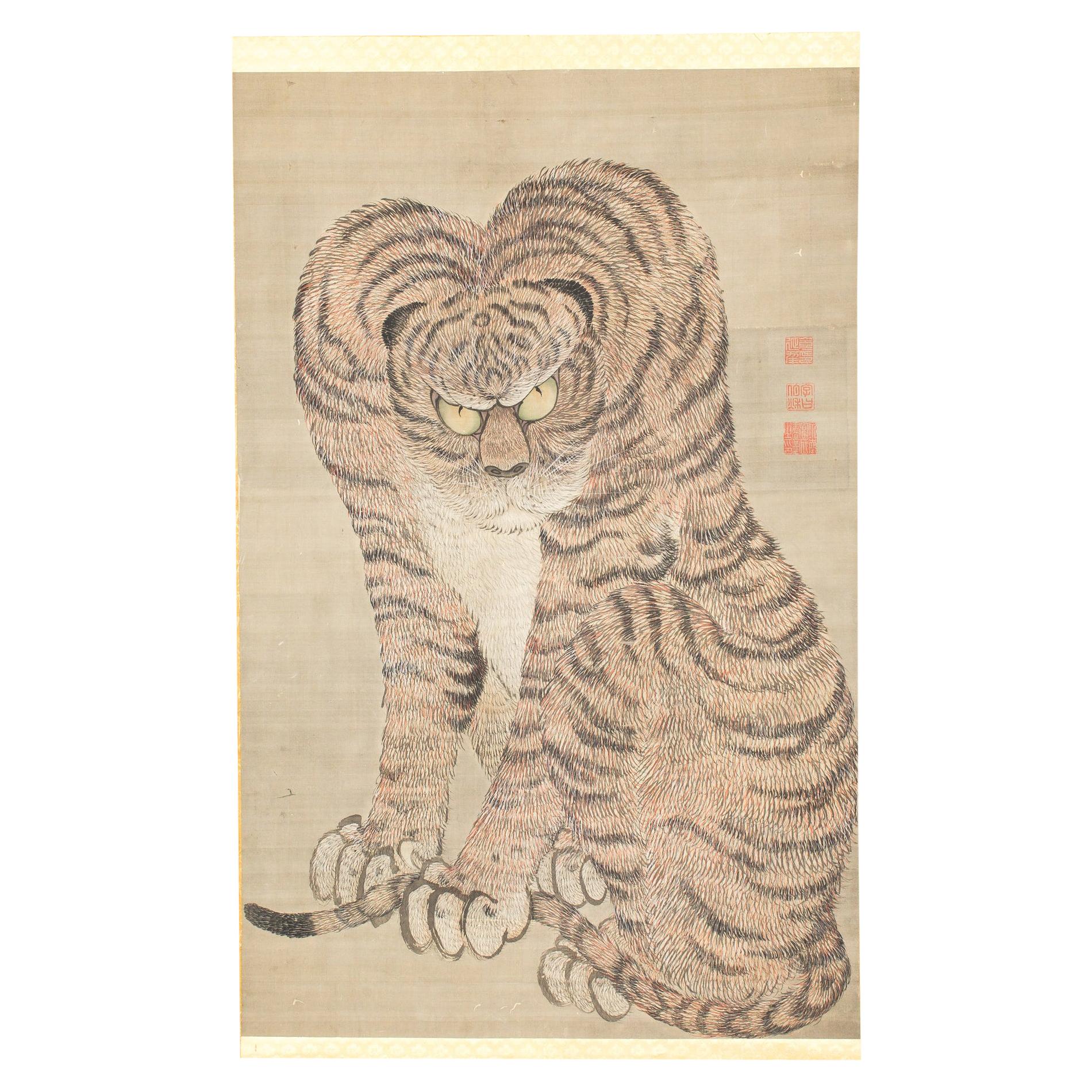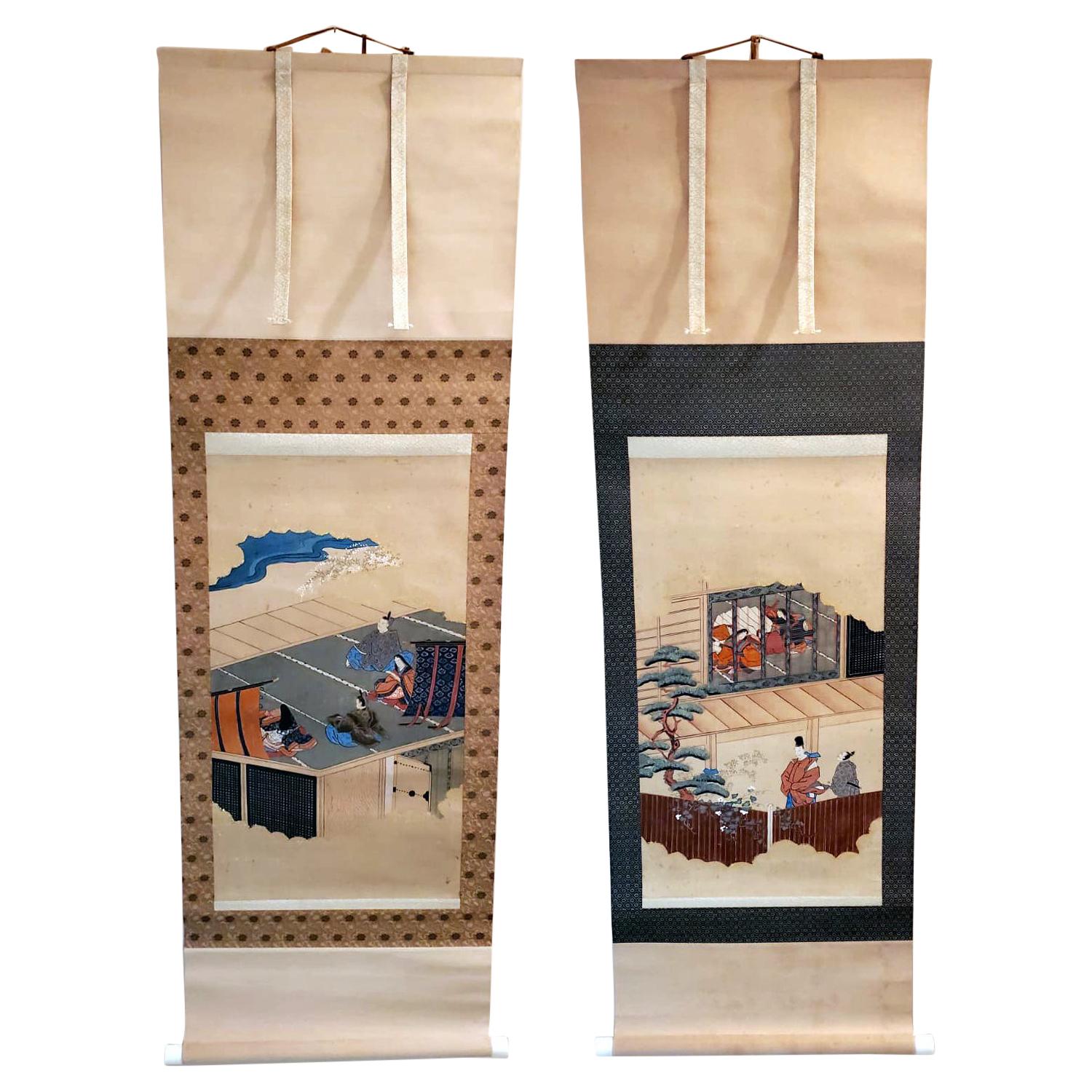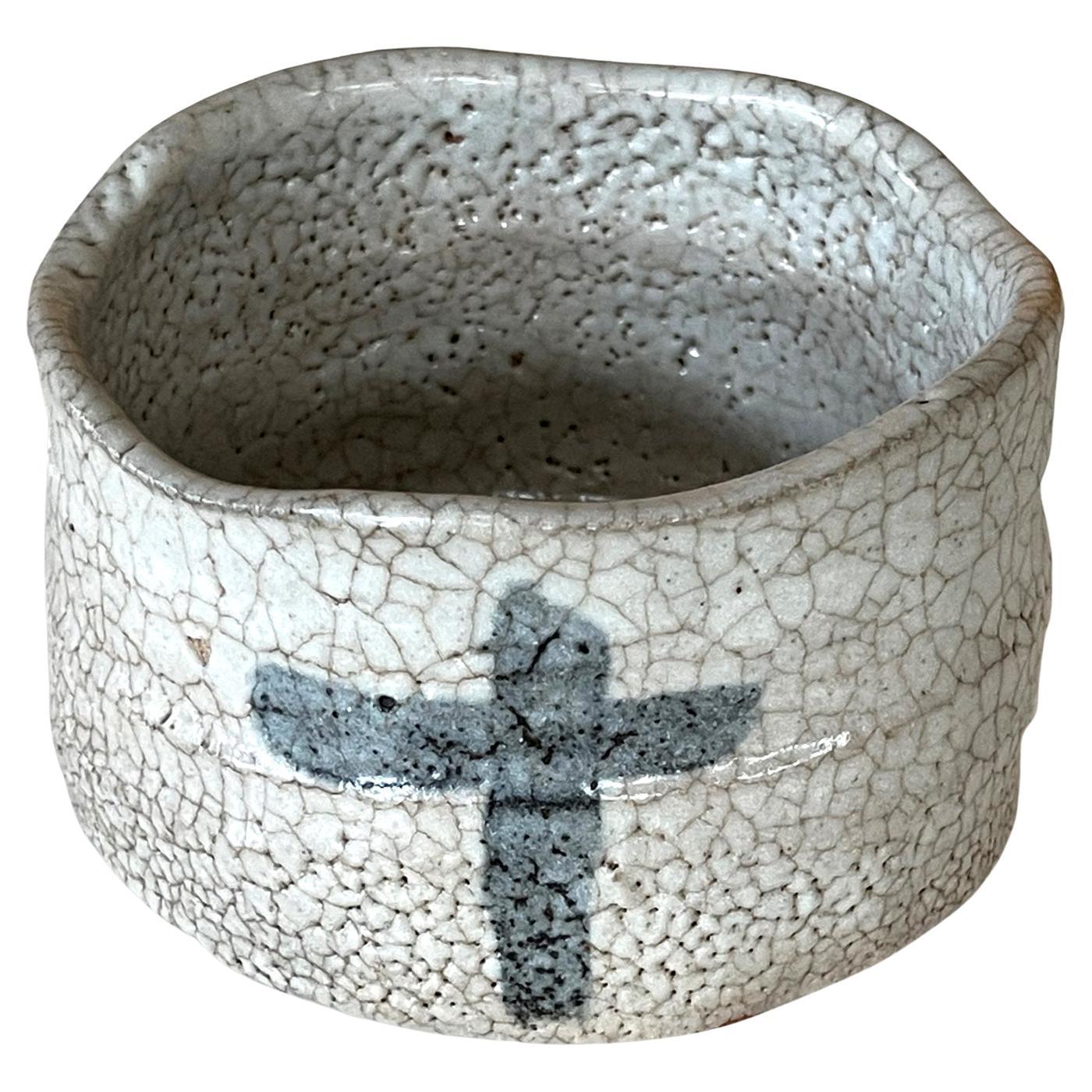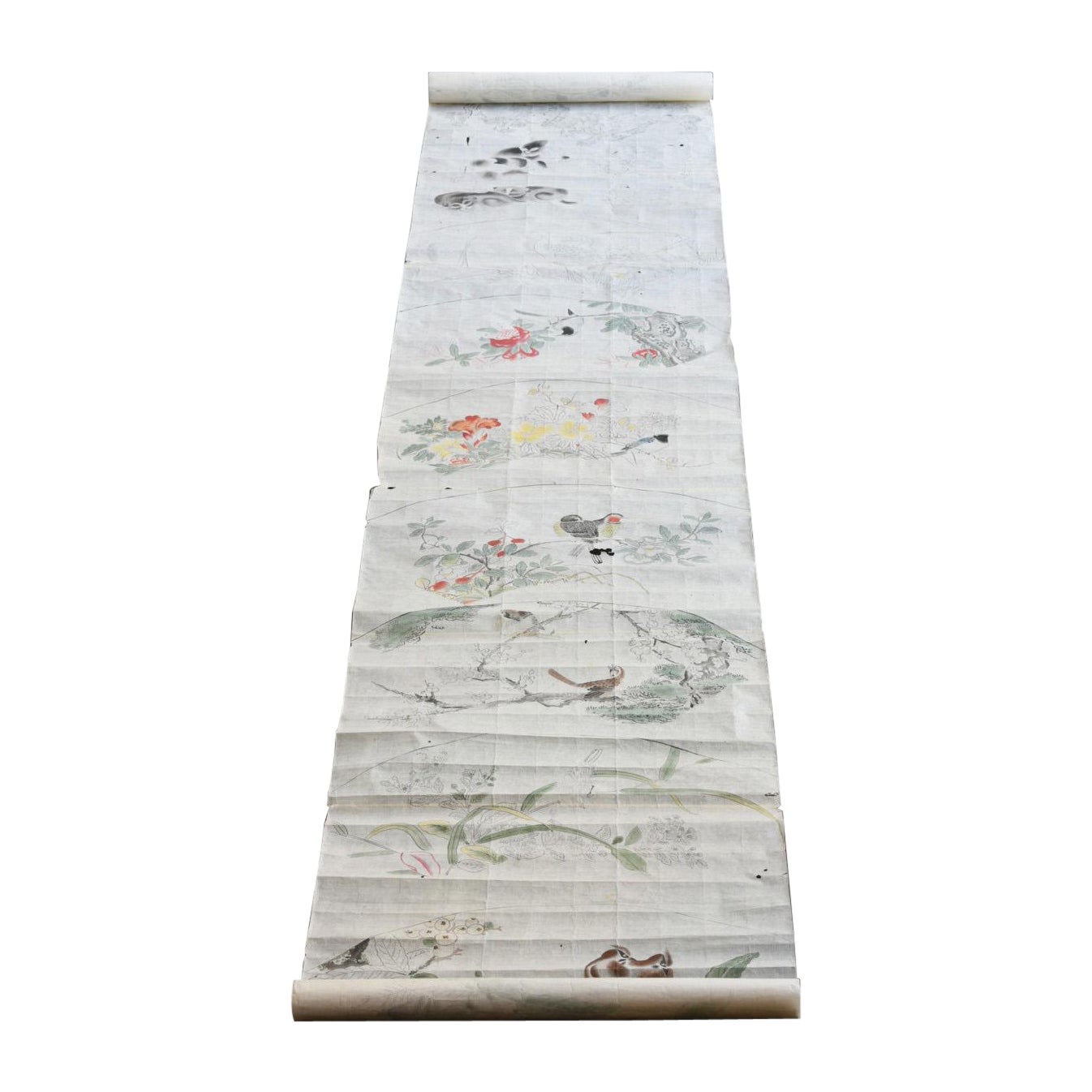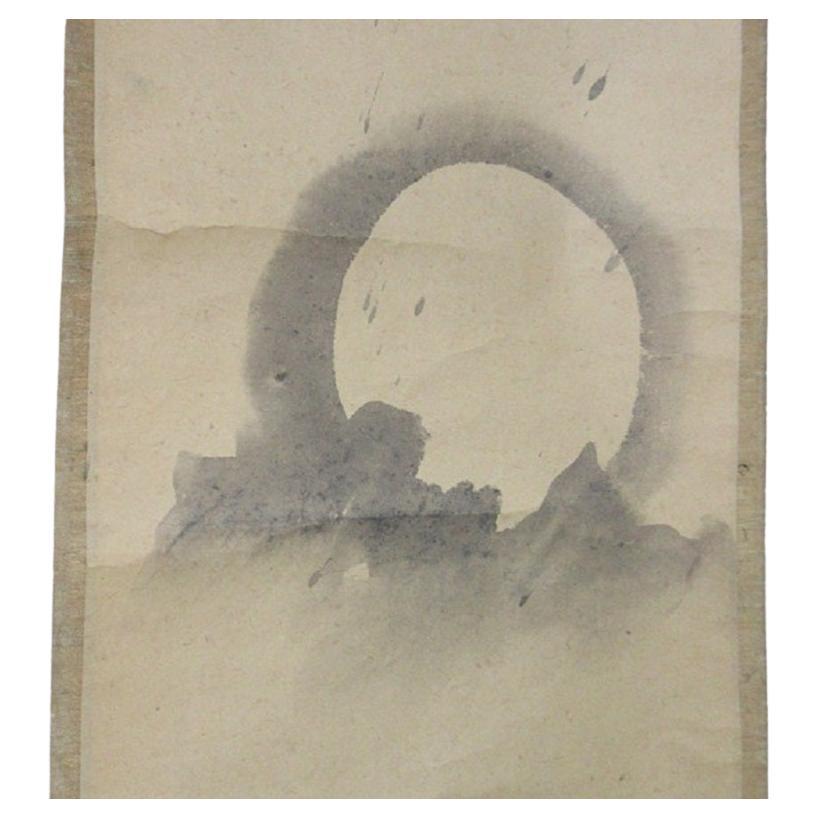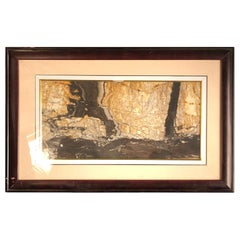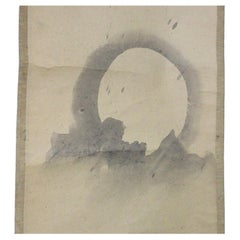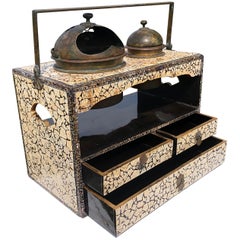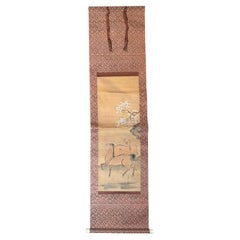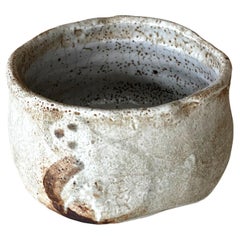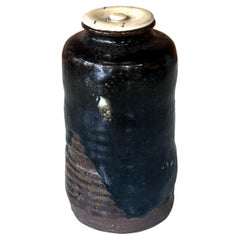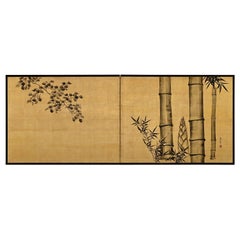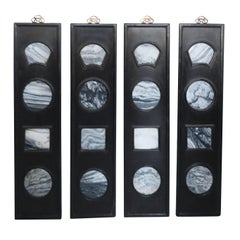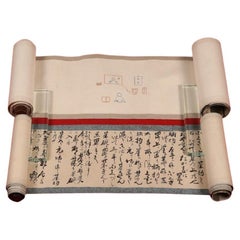
Japan Antique Tea Master Ceremony Guide Double Scroll Matsudara Fumai 1751-1818
View Similar Items
Want more images or videos?
Request additional images or videos from the seller
1 of 15
Japan Antique Tea Master Ceremony Guide Double Scroll Matsudara Fumai 1751-1818
Price:$236
About the Item
- Dimensions:Height: 8 in (20.32 cm)Width: 160 in (406.4 cm)Depth: 0.5 in (1.27 cm)
- Style:Edo (Of the Period)
- Materials and Techniques:
- Place of Origin:
- Period:
- Date of Manufacture:19th Century
- Condition:Wear consistent with age and use.
- Seller Location:South Burlington, VT
- Reference Number:1stDibs: LU1289234093542
About the Seller
5.0
Platinum Seller
Premium sellers with a 4.7+ rating and 24-hour response times
Established in 1990
1stDibs seller since 2015
2,394 sales on 1stDibs
Typical response time: 1 hour
Authenticity Guarantee
In the unlikely event there’s an issue with an item’s authenticity, contact us within 1 year for a full refund. DetailsMoney-Back Guarantee
If your item is not as described, is damaged in transit, or does not arrive, contact us within 7 days for a full refund. Details24-Hour Cancellation
You have a 24-hour grace period in which to reconsider your purchase, with no questions asked.Vetted Professional Sellers
Our world-class sellers must adhere to strict standards for service and quality, maintaining the integrity of our listings.Price-Match Guarantee
If you find that a seller listed the same item for a lower price elsewhere, we’ll match it.Trusted Global Delivery
Our best-in-class carrier network provides specialized shipping options worldwide, including custom delivery.More From This Seller
View AllChina Natural Stone "Painting" Moonlight Earth
Located in South Burlington, VT
Chinese extraordinary natural stone painting
"Moonlight Earth" #9
This Chinese extraordinary natural stone "painting" of what appears to be a blac...
Category
Late 20th Century Chinese Mid-Century Modern Scholar's Objects
Materials
Marble
$596 Sale Price
60% Off
Japanese Rare Antique Scroll of Waka Heart Poem Famous Rengetsu Otagaki, signed
Located in South Burlington, VT
Japan, a rare paper scroll hand painted by renown Rengetsu Otagaki (1791-1875). She was a very famous nun in old Japan and being familiar with poetry, her Waka poems on paper, and e...
Category
Antique Late 19th Century Japanese Edo Paintings and Screens
Materials
Paper
$1,600 Sale Price
20% Off
Japanese Rare Antique Inlaid Smoking Tansu, Complete 1850
Located in South Burlington, VT
The first we have seen
A spectacular and hard to find Inlaid mother of pearly - using the raden technique- and lacquered three-drawer Tansu complete with all original bronze accoutrement including a fine engraved antique long pipe and two removable covered bronze cylinders all executed by expert mid-19th century Edo samurai...
Category
Antique 19th Century Japanese Edo Scholar's Objects
Materials
Bronze
$960 Sale Price / set
48% Off
Japanese Antique Bold Hand-Painted "Two Horses" Silk Scroll, Meiji Period
Located in South Burlington, VT
A bold, spectacular Japanese hand-brushed, hand-painted silk scroll of two horses below plumb tree mountain- worthy of your favorite room
Hand painting on silk in simple soft pleasin...
Category
Antique Late 19th Century Japanese Meiji Paintings and Screens
Materials
Silk
$180 Sale Price
20% Off
Japanese Connoisseurs Collection Fine Antique Smoking Pipes Kiseru
Located in South Burlington, VT
Rare one-of-a-kind collection
Japanese Connoisseurs Collection of Five (5) Fine Antique Smoking Pipes, Kiseru.
You dont need to be a conn...
Category
Antique 19th Century Japanese Meiji Scholar's Objects
Materials
Bronze, Gold, Sterling Silver, Copper
$1,440 Sale Price / set
80% Off
Japan Gem Antique Gilt Bronze Kanon Guanyin Signed Shohei
Located in South Burlington, VT
Japan, a fine and elegant antique Kanon Guan Yin standing in a classic compassionate mudra- a superb work of art cast in solid bronze with original traces of old gold gilding.
Signe...
Category
Early 20th Century Japanese Taisho Scholar's Objects
Materials
Bronze
$1,920 Sale Price
50% Off
You May Also Like
Antique Japanese Shino Ware Chawan Tea Bowl
Located in Atlanta, GA
On offer is a Japanese ceramic tea bowl (chawan) used in the traditional chado ceremony. The bowl was potted in clog form with a ring foot shaved extremely low. Its size and harmonious proportion make it perfect to be held in both hands during chado. Classified as shino ware...
Category
Antique 18th Century Japanese Edo Ceramics
Materials
Ceramic
Rare and Fine Antique Japanese Ceramic Ko-Satsuma Chaire Tea Caddy
Located in Atlanta, GA
A ceramic tall chaire (Tea caddies) ko-satsuma type from Edo period Japan circa 18th century. This type of small jar was made of stoneware. Its specific form with raised shoulder and...
Category
Antique 18th Century Japanese Edo Ceramics
Materials
Ceramic
19th Century Japanese Screen for Tea-Ceremony, Ink Bamboo and Plum on Gold Leaf
Located in Kyoto, JP
Three Friends of Winter
Nakajima Raisho (1796-1871)
Late Edo period, circa 1850
Ink and gold leaf on paper.
This is a double-sided Japanese Furosaki or tea-ceremony screen from the mid 19th century; bamboo and plum on the front, young pines the back. It by Nakajima Raisho, a master painter of the Maruyama school in the late Edo and early Meiji periods. In this work Raisho combines exquisite ink brushwork with large open spaces of brilliant gold-leaf to inspire the viewers imagination. Rather than naturalism, he is searching for the phycological impression of the motifs, resulting in abstraction and stylization. His simplification of the motifs the result of looking to capture the inner nature of the objects. This art motif is known as Sho Chiku Bai, or the Three Friends of Winter. Evergreen pine connotes steadfastness, bamboo suggests both strength and flexibility, while plum blossoms unfurling on snow-laden branches imply hardiness. Combined, this trio is emblematic of Japanese new year. Chinese literati were the first to group the three plants together due to their noble characteristics. Like these resilient plants flowering so beautifully in winter, it was expected of the scholar-gentleman to cultivate a strong character with which he would be able to show the same degree of perseverance and steadfastness even during times of adverse conditions.
The screen would have been placed near the hearth of a room used for the Japanese tea ceremony, shielding the fire from draughts and also forming a stimulating and decorative backdrop behind the tea utensils. It would have been used in the Hatsugama, or first tea-ceremony of the new year.
Nakajima Raisho (1796-1871) originally studied under Watanabe Nangaku before entering the school of Maruyama Ozui. He was the highest ranking Maruyama school painter at the end of the Edo period and was known as one of the ‘Four Heian Families’ along with Kishi...
Category
Antique Mid-19th Century Japanese Edo Paintings and Screens
Materials
Gold Leaf
Chinese Stone Dali Panels
Located in Sherborne, GB
This is a set of four antique Chinese Dali stone panels which depict wonderful landscape images. The stone is set in an ebonized panel frame. They look wo...
Category
Antique Early 1900s Chinese Qing Scholar's Objects
Materials
Marble, Brass
$2,535 Sale Price / set
61% Off
Magnificent And Fine Chinese Six-Panel Screen
Located in Bridgeport, CT
A six panel screen in black paint with overall gilt scrolled and carved and painted wood applied low relief decoration with some Mother-of-Pearl details. Scenes with pavilions and fi...
Category
Antique 19th Century Qing Paintings and Screens
Materials
Mother-of-Pearl, Wood, Lacquer
Korean Folding Chaekgeori Painted Scholar Floor Screen
Located in Atlanta, GA
A six-panel painted folding floor screen from Korea circa early 20th century. This type of screen is called Chaekgeori (books and things) which is quite unique to Korea. It became popular at the end of 18th century favored and encouraged by King Jeongjo (1752-1800) as a political tool to promote social conservatism such as the traditional Confucianism value, especially considered important in a time when waves of new ideology influx came to Korea. Initially commissioned for the royal court, they became increasingly popular with the scholars of noble and affluent households and were used widely in their halls and studies. Early screens were painted with trompe-l’oeil bookcases displaying books and arrays of collectibles. Later, the bookcases were eliminated to focus on the assemblage of neatly stacked books and objects of scholarly pursue. On this screen, the six panels were neatly presented and framed in woven brocade borders. Among the stacked volumes, one can find many fine porcelain vases with flowers, potted orchids, pen holders with brush pens and scroll paintings, incense burner, ink stone, teapot, fan with ink painting, vessels of fruits, exotic plants such as lotus, plumeria and even a pair of glasses. It feels like a pleasant visual measure hunting for the viewers. Several words in Chinese found their way into the picture as well, including filial (xiao), longevity (shou) and luck (fu).
The painting was done in a meticulous way with no details overlooked and also with a rather western still-life dimensional perspective. In a rather unusual maximal but also minimalistic way, the screen exudes a historical charm with a folky flair but appears modern at the same time.
Each panel is 17.5"w by 70.2"h.
For general information on the subject see reference: Chaekgeori the Power and Pleasure of Possessions in Korean Painted Screens...
Category
20th Century Korean Folk Art Paintings and Screens
Materials
Brocade, Silk, Wood, Paper
Recently Viewed
View AllMore Ways To Browse
Edo Scroll
Japanese Scroll Calligraphy
Antique Artist Box
Calligraphy Scroll
Tea Screen
Antique Paper Roller
Antique Japanese Tea Ceremony Paintings
Japanese Folding Screens
Gold Folding Screen
Japanese Gold Leaf Panel Paintings
Chinese Wood Painting
Japanese Art Of Cranes
Japanese Painting Silk Gold
18th Century Japanese Art
Hand Painted Silk Panels
Meiji Period Japanese Screen
Japanese Edo Period Screens
Japanese Screens Flowers
